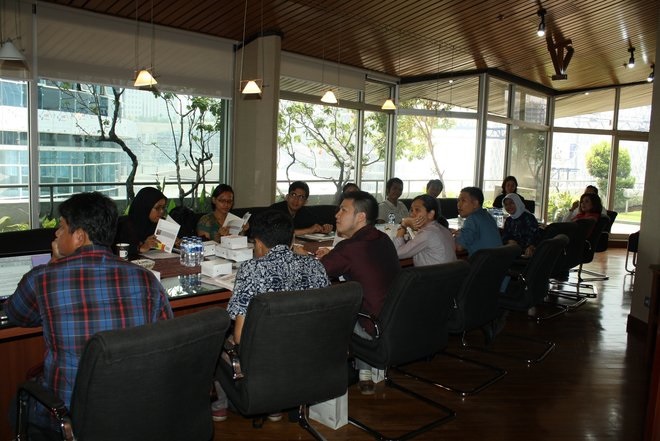Indonesian Perspectives on Post-2015 Development Goals

The Post-2015 Consensus held a country specific seminar on the post-2015 development agenda in Indonesia on 25th March.
The second in a series of 9 seminars to be held around the world. The purpose of the country specific discussion is to bring together international economists with local sector experts in order to delve deeper into the potential benefits which the post-2015 development agenda could bring to the country and the necessity of prioritizing smart targets to achieve the desired outcomes for the country.
Wahyuningsih Darajati, Director of Environmental Affairs at the Indonesian Ministry of National Development Planning opened the seminar as keynote speaker with an address on Sustainable Development in the National Development Plan.
Followed by a dialogue led by the economists and sector experts across three themes: energy, population and demography, and non-communicable diseases plus one case study on nutrition, presented by Ravi Menon, Country Representatives of the Global Alliance for Improved Nutrition (GAIN), the participants of the seminar were given a concrete understanding of potential good the post-2015 development agenda can do within Indonesia if smart targets are prioritized for each theme.
For more information on prioritizing smart targets download the PDF presentation "The Smartest Targets For The World 2016-2030" by Bjorn Lomborg and scroll down for more information and resources to learn what the post-2015 development agenda could mean for Indonesia.
Click here to see the full media coverage in Indonesia.
Indonesian Perspectives: Energy
Despite the strength of the economy and energy reserves, nearly half the rural population has no access to electricity, and 42% of the nearly quarter of a billion population cook using traditional fuels, including firewood, leaves and animal dung."
– Amy Sopinka, Seminar Speaker

Indonesian Perspectives: Population and Demography
Much of this future growth [in Indonesia] will be concentrated in urban areas, the infrastructure and social services of which are already struggling due to rapid urbanization in recent decades. A substantial upsurge in the population, especially among the urban poor, would compound these problems."
– Hans-Peter Kohler, Seminar Speaker and Jere R. Behrman, Seminar Contributor

Indonesian Perspectives: Non-communicable Diseases
Indonesia is suffering more and more from what were once seen as the diseases of affluent countries, such as heart disease and cancer. These so-called non-communicable diseases (NCDs) now account for over 65% of all deaths in the country.”
– Rachel Nugent, Seminar Speaker and Elizabeth Brouwer, Seminar Contributor






